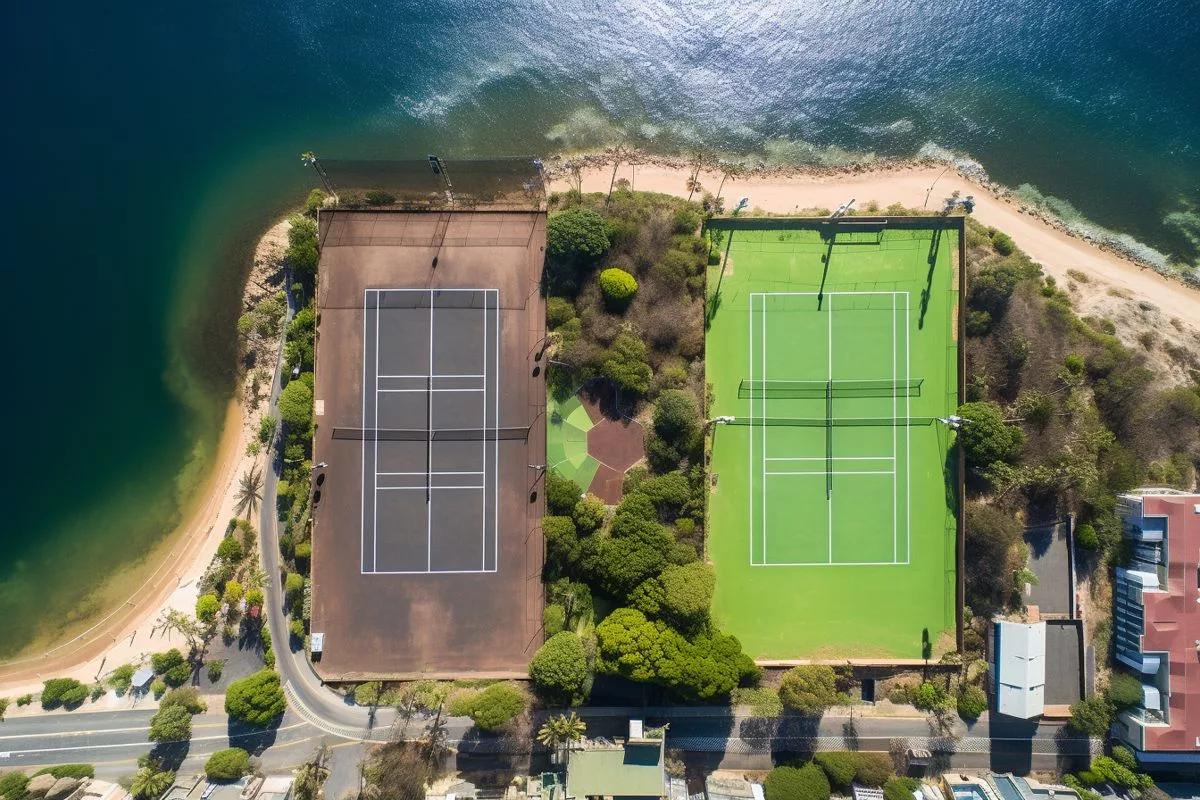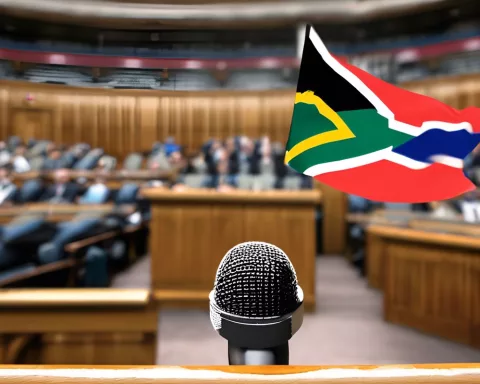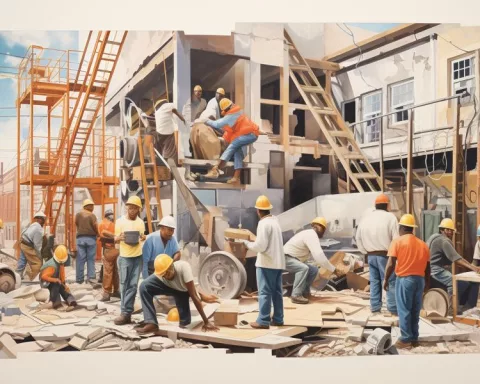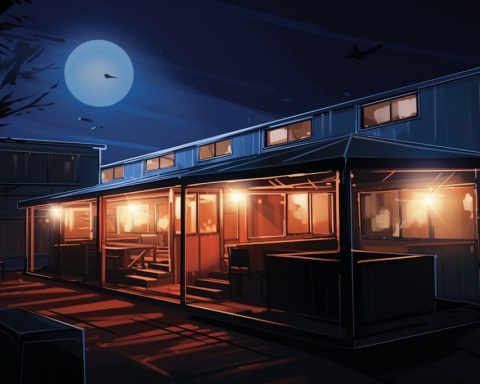The Western Cape High Court has ordered the final evacuation of illegal residents from Green Point Tennis Courts in Cape Town. The City of Cape Town has shown empathy towards the occupants and has provided welfare interventions and social support, which include access to transitional accommodations at NGO-run night shelters and City-administered Safe Spaces. The City’s approach is geared towards creating a more orderly, inclusive, and fair society, with plans to tackle homeless settlements in the Central Business District and increase its budget for social development initiatives.
What is the court mandate for Green Point Tennis Courts and its implications?
The court mandate orders the evacuation of illegal dwellings by January 31 and prohibits any future illegal habitation of Green Point Tennis Courts and other public spaces owned by the city. The City of Cape Town provides welfare interventions and social support, including access to transitional accommodations at NGO-run night shelters and City-administered Safe Spaces, which promote sustainable assimilation into society. The City also has plans to tackle homeless settlements in the Central Business District and increase its budget for social development initiatives.
In the pulsating heart of Cape Town’s vibrant business and tourism centre, a significant event occurred on December 11, 2023. The Western Cape High Court mandated the final expulsion of illegal residents from the Green Point Tennis Courts. This landmark ruling not only signifies a win for the City but also highlights the persistent endeavours to create a more orderly, inclusive, and fair society.
Court Mandate and Its Implications
This court mandate is two-pronged in its emergence. It first mandates the total evacuation of illegal dwellings by January 31. Following this, it prohibits any future illegal habitation of the Green Point Tennis Courts and other explicitly mentioned public spaces owned by the city. Should intervention be necessary, the court’s sheriff possesses the power to execute this eviction after the designated date.
The court order is characterized by an inherent sense of humanity. The City of Cape Town has shown patience, resilience, and empathy in dealing with the illegal occupants. The City has actively provided welfare interventions and social support, which include access to respectable transitional accommodations at NGO-run night shelters and City-administered Safe Spaces.
The City’s Approach Toward Inclusion and Rehabilitation
These sanctuaries are more than mere shelters; they are change-promoting centres, providing social programs designed for the sustainable assimilation of occupants into society. The aim is to facilitate their move from the streets to a safer life, help reconnect them with their families, and provide them with opportunities for personal growth and employment. These hubs also make necessary recommendations for mental health, medical, and addiction treatments.
In sync with this strategy, the City gears up to tackle homeless settlements in the Central Business District (CBD). A series of sites, including Buitengracht Street, FW De Klerk Boulevard, Foregate Square, taxi rank and Foreshore, Helen Suzman Boulevard, Strand Street, Foreshore/N1, Virginia Avenue, and Mill Street Bridge, are likely next to receive an eviction order similar to this one.
Mayor Geordin Hill-Lewis aptly summarized the City’s position: “No one has the right to claim a public space exclusively for themselves while persistently declining all shelter and social aid offerings.” The City’s philosophy respects the dignity, health, and well-being of each individual, while emphasizing the importance of public spaces being accessible to all.
Announcements and Future Plans
The City backs up its commitment with actions and court rulings. A significant budget of R230 million over three years is allocated to expand and manage Safe Space transitional shelters. The present capacity of 700 beds across the CBD and Bellville facilities will see a substantial increase with the launch of a new 300-bed Safe Space in Green Point next year.
Moreover, the Haven Night Shelter in CBD saw a 63% increase in bed capacity, rising from 96 to 156 beds, courtesy of a R500,000 cost contribution from the City. In winter, when demand peaks, the City collaborated with NGOs to add 300 more temporary bed spaces, thus demonstrating its proactive approach to addressing the City’s social issues.
The budget plans are noteworthy. A social development budget of R94.75m has been allocated for the year 23/24, a 23% rise from the previous year, making Cape Town the only metro to dedicate a budget to this pressing issue. Over the span of three years, R75m will be accessible through the grant-in-aid funding to NGOs, further endorsing this cause.
Impact and Success of the Initiatives
The City’s Matrix substance abuse treatment programme, with an impressive 80% success rate, attests to the effectiveness of these initiatives. By June 2023, almost 3,500 individuals had benefited from shelter allotments or referrals to a range of social services. This includes over 880 short-term contract job opportunities through the Expanded Public Works Programme.
The City’s Safe Space model is all-encompassing: from providing dignified shelter, comfort, ablutions, two meals a day, access to on-site social workers, and personal development planning, to facilitating various social services including ID Book and social grant assistance, family reunification services, substance and alcohol abuse treatment, skills training, job hunting support, and access to EPWP work placement.
In this convoluted urban narrative, the eviction order for the Green Point Tennis Courts isn’t just about regaining a public space; it’s an affirmation of Cape Town’s commitment to enforce the law, uphold individual rights, and cultivate a society that is inclusive, caring, and progressive.
1. What is the court mandate for Green Point Tennis Courts and its implications?
The court mandate orders the evacuation of illegal dwellings by January 31 and prohibits any future illegal habitation of Green Point Tennis Courts and other public spaces owned by the city. The City of Cape Town provides welfare interventions and social support, including access to transitional accommodations at NGO-run night shelters and City-administered Safe Spaces, which promote sustainable assimilation into society. The City also has plans to tackle homeless settlements in the Central Business District and increase its budget for social development initiatives.
2. What is the City’s approach towards inclusion and rehabilitation?
The City’s approach towards inclusion and rehabilitation involves providing social programs designed for the sustainable assimilation of occupants into society. The aim is to facilitate their move from the streets to a safer life, help reconnect them with their families, and provide them with opportunities for personal growth and employment. Additionally, these programs make necessary recommendations for mental health, medical, and addiction treatments to help occupants overcome their challenges.
3. What are the City’s plans to tackle homeless settlements?
The City plans to tackle homeless settlements in the Central Business District by evicting illegal dwellers from various locations and public spaces. Sites, including Buitengracht Street, FW De Klerk Boulevard, Foregate Square, taxi rank and Foreshore, Helen Suzman Boulevard, Strand Street, Foreshore/N1, Virginia Avenue, and Mill Street Bridge, are likely next to receive an eviction order similar to this one.
4. What are the future plans and announcements made by the City?
The City has allocated a significant budget of R230 million over three years to expand and manage Safe Space transitional shelters. Additionally, a social development budget of R94.75m has been allocated for the year 23/24, a 23% rise from the previous year, making Cape Town the only metro to dedicate a budget to this pressing issue. The City has also made available R75m through the grant-in-aid funding to NGOs, further endorsing this cause.
5. What is the impact and success of the City’s initiatives?
The City’s Matrix substance abuse treatment program, with an impressive 80% success rate, attests to the effectiveness of these initiatives. By June 2023, almost 3,500 individuals had benefited from shelter allotments or referrals to a range of social services. This includes over 880 short-term contract job opportunities through the Expanded Public Works Programme.
6. What is the significance of the eviction order for Green Point Tennis Courts?
The eviction order for Green Point Tennis Courts isn’t just about regaining a public space; it’s an affirmation of Cape Town’s commitment to enforce the law, uphold individual rights, and cultivate a society that is inclusive, caring, and progressive. The City’s approach towards providing welfare interventions and social support promotes sustainable assimilation into society, which is a step towards creating a more orderly, inclusive, and fair society.












